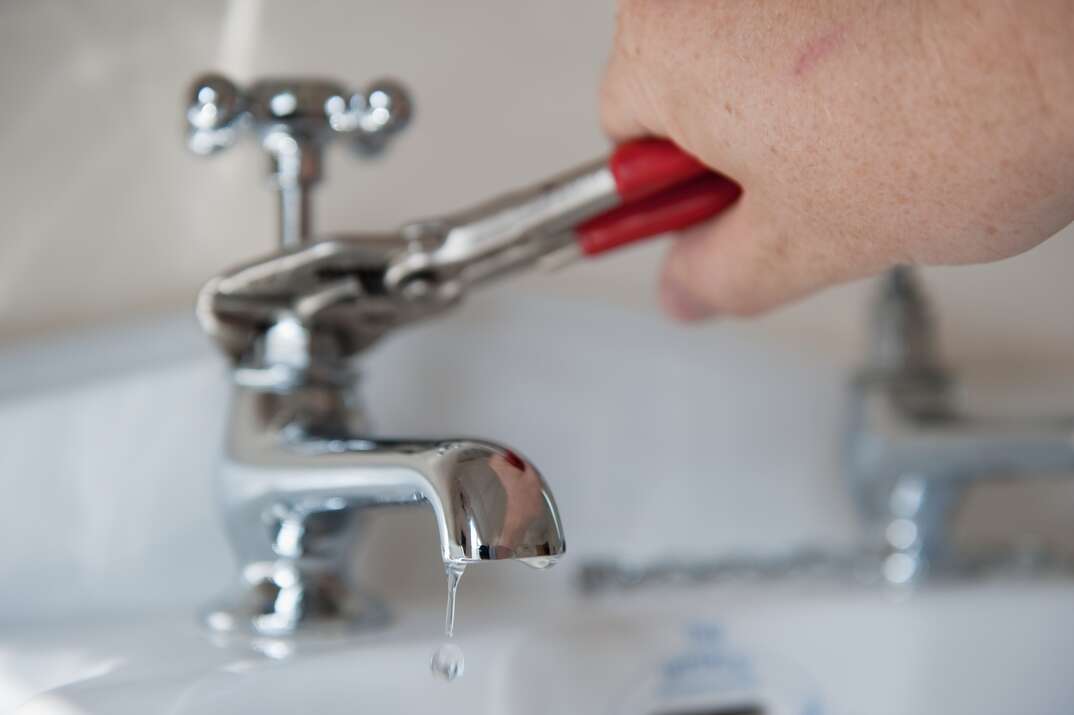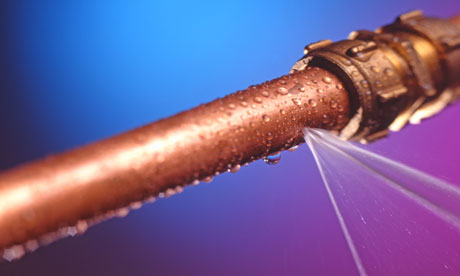Home Appliance Troubles? Why Some Problems Call for a Skilled Plumbing Professional
Home Appliance Troubles? Why Some Problems Call for a Skilled Plumbing Professional
Blog Article
Almost everyone has got their private opinion about Why is My Home Making Strange Plumbing Noises.

To detect loud plumbing, it is very important to identify very first whether the unwanted sounds occur on the system's inlet side-in other words, when water is turned on-or on the drain side. Sounds on the inlet side have actually differed reasons: extreme water pressure, worn valve and tap components, poorly linked pumps or various other home appliances, incorrectly placed pipe bolts, and also plumbing runs having a lot of tight bends or other restrictions. Sounds on the drainpipe side normally come from poor location or, similar to some inlet side sound, a design consisting of tight bends.
Hissing
Hissing noise that takes place when a tap is opened somewhat typically signals excessive water stress. Consult your neighborhood public utility if you think this problem; it will certainly have the ability to tell you the water pressure in your location as well as can set up a pressurereducing valve on the inbound water system pipe if essential.
Various Other Inlet Side Noises
Squeaking, squeaking, damaging, breaking, as well as tapping normally are brought on by the growth or contraction of pipelines, typically copper ones supplying warm water. The noises happen as the pipelines slide versus loose bolts or strike close-by house framework. You can typically pinpoint the place of the problem if the pipelines are subjected; just comply with the sound when the pipelines are making noise. More than likely you will certainly discover a loosened pipe wall mount or an area where pipelines lie so near floor joists or various other framing items that they clatter against them. Affixing foam pipeline insulation around the pipelines at the point of get in touch with should correct the problem. Make certain straps and also hangers are safe and secure and supply adequate assistance. Where possible, pipeline bolts ought to be affixed to enormous architectural aspects such as structure walls rather than to framing; doing so reduces the transmission of resonances from plumbing to surfaces that can intensify and move them. If affixing fasteners to framework is unavoidable, wrap pipelines with insulation or other durable product where they get in touch with bolts, and sandwich the ends of brand-new bolts between rubber washing machines when mounting them.
Fixing plumbing runs that experience flow-restricting tight or countless bends is a last option that must be taken on only after speaking with a competent plumbing specialist. Regrettably, this scenario is rather common in older homes that may not have actually been developed with interior plumbing or that have actually seen numerous remodels, specifically by beginners.
Babbling or Screeching
Intense chattering or screeching that occurs when a valve or faucet is turned on, and that typically vanishes when the fitting is opened completely, signals loosened or faulty interior components. The option is to change the shutoff or tap with a brand-new one.
Pumps as well as home appliances such as washing devices as well as dishwashing machines can transfer motor noise to pipes if they are improperly connected. Link such things to plumbing with plastic or rubber hoses-never inflexible pipe-to isolate them.
Drain Sound
On the drainpipe side of plumbing, the principal goals are to get rid of surfaces that can be struck by falling or rushing water and also to shield pipelines to consist of inevitable noises.
In new construction, bathtubs, shower stalls, commodes, and also wallmounted sinks and also basins ought to be set on or against resilient underlayments to lower the transmission of audio with them. Water-saving bathrooms and faucets are much less loud than traditional designs; install them rather than older types even if codes in your area still allow making use of older components.
Drainpipes that do not run vertically to the cellar or that branch right into horizontal pipe runs sustained at flooring joists or other framing existing especially problematic noise troubles. Such pipes are large sufficient to emit significant vibration; they also lug considerable amounts of water, that makes the circumstance worse. In new construction, define cast-iron soil pipes (the huge pipelines that drain commodes) if you can afford them. Their massiveness consists of much of the sound made by water going through them. Likewise, avoid transmitting drainpipes in wall surfaces shown bedrooms and also spaces where individuals collect. Walls consisting of drainpipes should be soundproofed as was defined earlier, making use of double panels of sound-insulating fiberboard as well as wallboard. Pipes themselves can be covered with special fiberglass insulation created the purpose; such pipelines have an invulnerable plastic skin (in some cases having lead). Results are not constantly satisfying.
Thudding
Thudding sound, frequently accompanied by shivering pipes, when a tap or appliance shutoff is shut off is a problem called water hammer. The noise and also vibration are triggered by the reverberating wave of pressure in the water, which suddenly has no location to go. Often opening up a valve that releases water rapidly right into a section of piping containing a limitation, elbow, or tee installation can produce the exact same condition.
Water hammer can normally be cured by setting up installations called air chambers or shock absorbers in the plumbing to which the problem valves or taps are connected. These gadgets permit the shock wave created by the halted flow of water to dissipate airborne they have, which (unlike water) is compressible.
Older plumbing systems may have brief vertical sections of capped pipe behind wall surfaces on faucet runs for the very same function; these can eventually full of water, lowering or destroying their efficiency. The treatment is to drain the water supply completely by turning off the major water supply valve and also opening all faucets. After that open the primary supply shutoff and close the taps individually, starting with the faucet nearest the valve as well as finishing with the one farthest away.
3 Most Common Reasons for Noisy Water Pipes
Water hammer
When water is running and is then suddenly turned off, the rushing liquid has no place to go and slams against the shut-off valve. The loud, thudding sound that follows is known as a water hammer. Besides being alarming, water hammer can potentially damage joints and connections in the water pipe itself. There are two primary methods of addressing this issue.
Check your air chamber. An air chamber is essentially a vertical pipe located near your faucet, often in the wall cavity that holds the plumbing connected to your sink or tub. The chamber is filled with air that compresses and absorbs the shock of the fast moving water when it suddenly stops. Unfortunately, over time air chambers tend to fill with water and lose their effectiveness. To replenish the air chambers in your house you can do the following. Turn off the water supply to your house at the main supply (or street level). Open your faucets to drain all of the water from your plumbing system. Turn the water back on. The incoming water will flush the air out of the pipes but not out of the vertical air chamber, where the air supply has been restored. Copper pipes
Copper pipes tend to expand as hot water passes through and transfers some of its heat to them. (Copper is both malleable and ductile.) In tight quarters, copper hot-water lines can expand and then noisily rub against your home's hidden structural features — studs, joists, support brackets, etc. — as it contracts.
One possible solution to this problem is to slightly lower the temperature setting on your hot water heater. In all but the most extreme cases, expanding and contracting copper pipes will not spring a leak. Unless you’re remodeling, there's no reason to remove sheetrock and insert foam padding around your copper pipes.
Water pressure that’s too high
If your water pressure is too high, it can also cause noisy water pipes. Worse, high water pressure can damage water-supplied appliances, such as your washing machine and dishwasher.
Most modern homes are equipped with a pressure regulator that's mounted where the water supply enters the house. If your home lacks a regulator, consider having one professionally installed. Finally, remember that most plumbers recommend that water is delivered throughout your home at no lower than 40 and no greater than 80 psi (pounds per square inch).
Whatever the state of your plumbing, one thing is certain — you’re eventually going to encounter repair and replacement issues around your home that require professional help. That’s where American Home Shield can come to your aid.
https://www.ahs.com/home-matters/repair-maintenance/causes-of-noisy-water-pipes/

I am just very inquisitive about Why Do My Plumbing Pipes Make A Knocking Noise and I am praying you enjoyed the post. Enjoyed reading our entry? Please share it. Let someone else check it out. Thank you for going through it.
Article Report this page